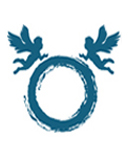Liberté, Égalité, Fraternité? |
Not long ago in the Taliban-ruled Afghanistan, the niqab or burqa was mandatory from any girl aged 10 or above to foreigner females visiting or living in the war-torn country. The militia bagged the worst condemnations worldwide for oppressing women and violating basic fundamental rights. The practice continued until the US-led coalition troops marched on the streets of Kabul, Kandahar and Jalalabad to deliver equal human rights and freedom to practice one’s faith and way of life. While the Taliban are on the run, women still wear the burqa in the ‘liberated’ Afghanistan.
After 9/11, Muslims were stigmatized beyond proportion. Yet independent polls suggested that more youth has grown beards and turnover of Friday prayers in mosques has increased ever since. The female folk from the second and third generations of immigrants searched for their roots and chose to adopt fashionable headscarves, caring less for being spotted and hooted upon.
Despite planeloads of indiscriminate and unlawful deportations of Muslims to the Middle Eastern and Far East Asian countries, the United States continues to respect religious freedom on its soil, more than the followers of Islam expected. Europe, meanwhile, remained a different story altogether. Muslims were seen synonymous to potential suicide bombers, thus reconnoitered, interrogated and strip-searched. Their places of worship and community centers became subject of political point-scoring. A decade after the collapse of WTC twin towers in the United States, continental Europe has taken a wrong turn to its right, in some cases, the far right.
To arrest his nose-diving public rating, French President Nicolas Sarkozy opted to make 3,000-odd full-veil wearers scapegoats in the 64-million strong nation. The imposition of controversial law banning full-face veils in public places in France triggered severe criticism from civil society and but also from the country’s Muslim community.
Under the new French law, the niqab or burqa cannot be worn at public places including parks, shops, cinemas, restaurants and the public transport. The legislation, however, allows headscarf in hotel rooms, on corporate premises, in private vehicles and at places of worship.
The legislation is less likely to save the sinking craft and dilapidated popularity of Mr. Sarkozy, who is suffering ahead of next year’s presidential and parliamentary elections. While a new Pandora box of racism, aggression and assaults on Islam has been opened, the stigmatized French Muslims may neither change their ways of life nor leave their country of birth.
Last year, Belgium set the precedent by imposing a fine on women wearing the veil in public. The politically motivated move currently bans any dress that hides the identity of the wearer in parks and on the street. The move was passed unanimously in Brussels, headquarter of the European Commission.
Self-styled, trigger-happy ‘savior’ of the Libyan people, Paris may have stood for liberty, equality and fraternity but not anymore. After the controversial legislation, France has joined the club of Belgium, Iran and Saudi Arabia, countries which impose a dress code for women in the public sphere. Nearly a decade after 9/11, the West is taking things terribly wrong.








 About a decade after the 9/11 attacks, shortsighted politicians and drawing room analysts dominate media headlines painting a doomsday scenario for the future. Mutually hostile camps with deeply vested interests drag the world to the brink of conflicts, religious, ethnic and cultural.
About a decade after the 9/11 attacks, shortsighted politicians and drawing room analysts dominate media headlines painting a doomsday scenario for the future. Mutually hostile camps with deeply vested interests drag the world to the brink of conflicts, religious, ethnic and cultural.
Post new comment